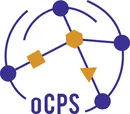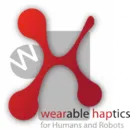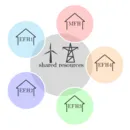CON-HUMO - Control based on Human Models

CON-HUMO focuses on novel concepts for automatic control, based on data-driven human models and machine learning. This enables innovative control applications that are difficult if not impossible to realize using traditional control and identification methods, in particular in the challenging area of smart human-machine interaction. In order to achieve intuitive and efficient goal-oriented interaction, anticipation is a key.
con-PDmode: Control-oriented PD state modelling and estimation for precision medicine

Parkinson's disease (PD) is a progressive neurodegenerative disorder and constitutes a serious public health concern. Although there are various methods on the market for evaluating disease symptoms using wearable sensors, these technologies are difficult to use, expensive and often require specific hardware. The EU-funded con-PDmode project addresses these limitations by developing software capable of accounting for inaccuracies and uncertainty in the data collected from low-cost wearable sensors.
RAMCIP - Robotic Assistant for Mild Cognitive Impairment Patients

Ambient robotic technologies are considered to play a major role in assisting elderly people to independently lead a good quality of life. The RAMCIP project was launched to develop a robotic solutions for holistically assisting elderly people, in particular with Mild Cognitive Impairment or an early stage Alzheimer's disease during activities of daily living in home environments.
DFG Priority Programme Cyber-Physical Networking (SPP 1914)
The goal of the Priority Programme is to develop the theoretical basis for the paradigmatic change from throughput- to real-time-oriented communication for networked control systems. In order to meet the requirements of cyber-physical applications a tight (horizontal and vertical) integration of all communication, control and system components is needed to fully exploit their individual elasticity and mutual adjustment potential. Ultimately, this requires joint communication, control and systems design methodologies. The Priority Programme aims at developing system-wide concepts and theories of modelling, analysis, coordination, and optimisation of the communication system and its components for networked control systems and real-time sensitive applications. It requires a novel unified consideration of models and methods from communication networks and systems, control, and information theory.
COVEMAS - Control and Optimization for Event-triggered Networked Autonomous Multi-agent Systems
The project COVEMAS is concerned with the energy consumption in cooperating multi-agents systems. The goal is to build a framework for measuring the energy consumption of the networked agents and develop energy-efficient control algorithms via the event-based control methodology. The particular focus is on complex nonlinear agent dynamics and energy consumption models.
oCPS - Optimizing Cyber-Physical Systems

The oCPS – ITN is an Innovative Training Network funded by the European Commission through its Marie Skłodowska-Curie Actions and brings together universities, research centres and companies from different countries worldwide to train a new generation of researchers. Concretely, 15 PhD students receive funding through this programme for a duration of 36 months within the 48 months project duration to pursue their PhD at research institutions and industry partners and having secondments in the other sector respectively.
ROADIE - Optimal Design and Nonlinear Control of Autonomous Underwater Vehicle
This project as a bilateral research collaboration Germany-Croatia is a joint effort of research teams from Technical University of Munich (TUM) and University of Dubrovnik (UNIDU). Within this project, we aim to devise an optimal design for Autonomous Underwater Vehicle (AUV) in terms of hydrodynamics and actuator allocation given mission requirements.
SNOOKIE - Bio-inspired Sensing and Control

The Snookie project aims at a novel and uniquely bionic approach to the fluid flow perception and control of underwater vehicles. It is inspired by the ability of fish to sense flow fields by means of their flow-sensory system, the lateral-line system. Through this organ fish are able to act in complex environments solely based on information provided via the motion of the surrounding water.
WEARHAP - Wearable Haptics for Humans and Robots

The complexity of the world around us is creating a demand for cognition-enabled interfaces that will simplify and enhance the way we interact with the environment. Project WEARHAP aims at laying the scientific and technological foundations for wearable haptics, a novel concept for the systematic exploration of haptics in advanced cognitive systems and robotics that will redefine the way humans will cooperate with robots.
CoSES - Combined Smart Energy Systems Research Laboratory

The CoSES Research Laboratory is an experimental micro grid which connects an electric, a heating and a communication network. The aim of the research is the development of an Energy systems with new features in the areas of control, communication and distributed renewable generation facilities with flexible loads and consideration of economic incentives.
Control Theory of Digitally Networked Dynamical Systems

The design of optimization and control algorithms for complex dynamical systems has become a vibrant part of research due to its wide applicability and impact with applications ranging from smart power grids, water distribution, and traffic systems to large arrays of Micro-Electro-Mechanical Systems (MEMS), formation of vehicles, and sensor-actuator networks.